Answer: Melons, despite their natural sweetness, can be incorporated into a keto diet but should be consumed in moderation. Their carbohydrate content, although slightly high, is not significantly enough to kick you out of ketosis if managed properly.
Melons, with their refreshing taste and high water content, can make for a delightful, hydrating snack on a hot day in Malaysia:
- Carbohydrate Content: Melons contain 8.16g of carbohydrates per 100g. While this is on the higher end for keto-friendly fruits, if you stick to a reasonable serving size, melons can still be a part of your keto diet.
- Sugar Content: With 7.86g of sugars per 100g, melons are relatively high in natural sugars. However, remember that natural sugars found in fruits are metabolized differently than processed sugars, and the fiber in melons can help slow the absorption of these sugars.
- Low in Fat: Melons only contain 0.19g of fat per 100g. As keto diet is high in fats, you would need to balance your intake of melons with other high-fat foods to maintain your macronutrient ratios.
- High in Potassium: Melons are a good source of potassium, providing 267mg per 100g. This is beneficial for those on a keto diet as potassium is an important electrolyte that can sometimes be hard to get in sufficient quantities when limiting certain food groups.
- Portion Control: It’s important to remember portion control when incorporating melons into a keto diet. Try to limit your serving size to a few slices to enjoy the benefits of melons without exceeding your daily carb limit.
Nutrition Facts
Serving Size100
- Amount Per ServingCalories34
- % Daily Value *
- Total Fat
0.19g
1%
- Saturated Fat 0.05g 1%
- Cholesterol 0mg 0%
- Sodium 16mg 1%
- Potassium 267mg 6%
- Total Carbohydrate
8.16g
3%
- Dietary Fiber 0.9g 4%
- Total Sugars 7.86g
- Protein 0.84g 2%
* The % Daily Value tells you how much a nutrient in a serving of food contributes to a daily diet. 2,000 calories a day is used for general nutrition advice.
